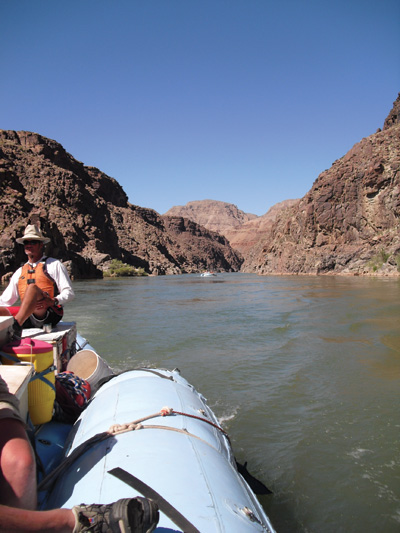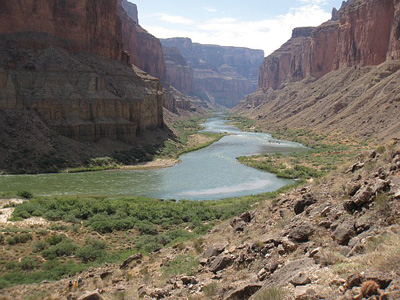
BY BARBI WALKER
Historically, low-impact travel has referred to ecotourism and meant traveling to fragile rural or wilderness areas to learn about preservation, ecology and the indigenous people. Today, it’s viewed as incorporating sustainable practices to leave a smaller ‘footprint’ regardless of destination.
Ecotourism leader Martha Honey, co-founder and co-director of the Center for Responsible Travel (CRES), formerly CESD, says one definition of ecotourism is “the practice of low-impact, educational, ecologically and culturally sensitive travel that benefits local communities and host countries.” Taking into account the world’s vast amount of travelers, we can and should extend this practice to all avenues of travel.
Consider this; a record number of 59.7 million visitors came to the United States in 2010, according to the Office of Travel and Tourism Industries (OTTI). Although the final numbers aren’t in yet, the OTTI predicted a 6 percent increase in 2011 and a continued annual growth of 5 percent over the next four years. That’s a whopping 81 million visitors, or 36 percent increase by the year 2016.
While low-impact travel has its roots in the wilderness, urban travelers can learn much from our eco-tourist friends. Applying low-impact practices to your travel, whether rural and rustic or urban and cultured, has a positive impact. Consider these during your next excursion:
Plan ahead and be prepared
It may seem obvious, but taking time to study up in advance helps you get the most out of your travel. The Leave No Trace Center for Outdoor Ethics indicates four important reasons for planning ahead:
• It helps ensure the safety of groups and individuals.
• It prepares you to “Leave No Trace” and minimizes resource damage.
• It contributes to accomplishing trip goals safely and enjoyably.
• It increases self-confidence and opportunities for learning more about nature and the area you are visiting.
Check the Leave No Trace website, http://www.lnt.org
, for detailed information on traveling lightly through the national parks and campsites. Planning ahead also gives you time to research companies that practice eco-friendly options or follow Leave No Trace principles.
Taking time to learn about your destination often helps uncover unique trips like those offered by Off Grid Getaways near Flagstaff. With solar-powered yurts and log-sided camper cabins, you can experience nature at its most pristine, or off grid.
At Off Grid Getaways, conservation is key. Rainwater is collected for household use, and propane fireplaces and heaters keep you toasty warm. Located in the Coconino National Forest at the base of the San Francisco Peaks just outside of Flagstaff, the remote location enables you to disconnect from technology and connect with nature—wildlife by day, and stargazing by night. You can also arrange a low-impact cross-country ski trip, or snowshoe your way to your own private cabin or yurt. The Flagstaff Nordic Center rents cross-country skis and snowshoes and can help you plan a trip through miles of well-groomed trails and hikes. The U. S. Forest Service has designated much of the area around the center as motorized vehicle-free so wildlife sightings are more prevalent. If you want a winter wonderland getaway, start planning now!
Spend locally
Spending locally has a positive impact on the local economy. Look for local merchants that provide tours, transportation, food and lodging. Whether you bicycle, cross-country ski or hike, there are plenty of opportunities to put low-impact travel into practice and support local businesses. If you are seeking adventure, like rafting the Grand Canyon, look for local companies with good reputations and long histories of environmental focus.

Arizona River Runners has been conducting whitewater rafting tours down the Colorado River through the Grand Canyon since 1970. This well-established company takes its stewardship to the Grand Canyon seriously—so much so that they proactively upgraded all motors on their riverboats with an award-winning, low-emission, outboard motor. The E-TEC engine, made by Evinrude, is the only outboard motor to win the Clean Air Excellence award by the Environmental Protection Agency (EPA).
Arizona River Runners follows and promotes the Leave No Trace principles to minimize environmental impact, and changing to the low-emission engine was right in line with the company’s values, says co-owner Bruce Winter.
“Because the new Evinrude engines produce very little smoke and less noise and vibration, we can provide a more enjoyable experience for our guests,” said Winter. “Using cleaner and quieter technology also has less of an impact on wildlife.”
Even if your trip is more urban-oriented, using local transportation such as buses, trains, trolleys or bikes still benefits the local economy and causes less environmental impact. If you are visiting the city of Scottsdale, take the trolley – it runs on bio-diesel fuel which contains no petroleum and is produced from renewable, domestic resources. The trolley service is available for both visitors and residents.
Take nothing but pictures
Maybe you have heard this credo? You’ll find it in guide books and every national park, but it’s worth repeating. “Take only pictures and leave only footprints.” Taking a small stone or shell or picking a flower can have a severe impact if done repeatedly. It’s said that a photograph is worth a thousand words, so share your memories the digital way.
When you leave, make sure to take everything with you. Even if you have to pack out your own trash or waste (another Leave No Trace principle), it’s important. Don’t leave anything behind to ruin the experience for others, or the ecosystem. Thinking about the impact you have on others, even after you leave, demonstrates respect for others and the area you are visiting.
Be respectful of the environment
Remember that, while you are a visitor, others call your travel destination home. Also, being considerate of others around is courteous and thoughtful. Talking loudly or playing loud music—even if it’s through your headphones—is disrespectful to others. Although we are much more casual in public society than years past, not everyone wants to hear your iPod playlist or about your latest endeavor. A good rule of thumb is to act more like you would in church, synagogue or at the library, at least when it comes to conversation and noise.
Conserve natural resources
Whether you stay in a resort, small local B&B, or a yurt, make sure to conserve natural resources. When you’re traveling, apply the same rules you would at home. Turn off the faucet while you brush your teeth, and turn off lights and the TV when you leave. Also, most hotels provide (and recommend) the option of having your linens washed less often to conserve water. Do that too—here in the desert, that practice is critical.
Being an eco-tourist and low-impact traveler means thinking about others and your personal impact on them—whether it be plants, animals, people or your surroundings. Taking time to plan and educate yourself about your destination not only helps you save time and money, but the planet too.
Arizona River Runners
1-800-477-7238
raftarizona.com





